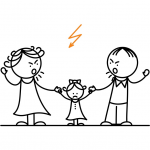
Katrina Witt considers the findings of a meta-analysis of longitudinal studies, which looks at exposure to interpersonal violence in childhood, and the impact that it may have on risk of suicide in young people.
[read the full story...]
Katrina Witt considers the findings of a meta-analysis of longitudinal studies, which looks at exposure to interpersonal violence in childhood, and the impact that it may have on risk of suicide in young people.
[read the full story...]
Nicky Lambert writes her debut Mental Elf blog on a recent review of violence and the impact that it has on women’s mental health
[read the full story...]
Emily Currell writes her debut Mental Elf blog about a recent Lancet Psychiatry systematic review, which reports that childhood maltreatment is associated with an unfavourable course of bipolar disorder in adult years.
[read the full story...]
Ian Cummins considers the implications of a new cohort study of convicted prisoners in Sweden, which links psychiatric disorders with violent reoffending.
[read the full story...]
A recent research project set out to listen to and understand the experiences of women with learning disabilities who were victims of domestic violence. As a result, the project team produced a set of materials to provide information and advice.
Here we look at the video resource produced by the team.
[read the full story...]
Professor Jill Manthorpe begins 2015 with a blog considering a systematic review on interventions to prevent and respond to violence against disabled people. She reflects on how social workers use systematic review papers as part of evidence based practice and gives some useful pointers for reading and getting the most from such studies.
[read the full story...]
This recent study concludes that childhood abuse creates an enduring vulnerability to psychosis that is realised in the event of exposure to further stressors and risk factors, such as separation, bereavement, or being involved in an accident or physical attack.
[read the full story...]
Negative childhood experiences have always been a big topic in psychology and psychiatry, as they tend to be associated with poor mental health outcomes in later life. Intimate partner violence (IPV) harms not only the adults directly involved in it, but also the children – witnessing IPV as a child is a known risk factor [read the full story…]

Behaviour within an intimate relationship which causes psychological, physical or sexual harm to either party is known as intimate partner violence (IPV). This violence is perpetrated by both men and women, but significant injuries are more commonly sustained by women. Consequently, IPV is a major public health concern as it contributes majorly to mortality in [read the full story…]

In June this year The World Health Organisation (WHO) published a report, which highlighted violence against women as a ‘global health problem of epidemic proportions’. The report detailed the impact of violence on the physical and mental health of women and girls. This can range from broken bones to pregnancy-related complications, mental problems and impaired [read the full story…]